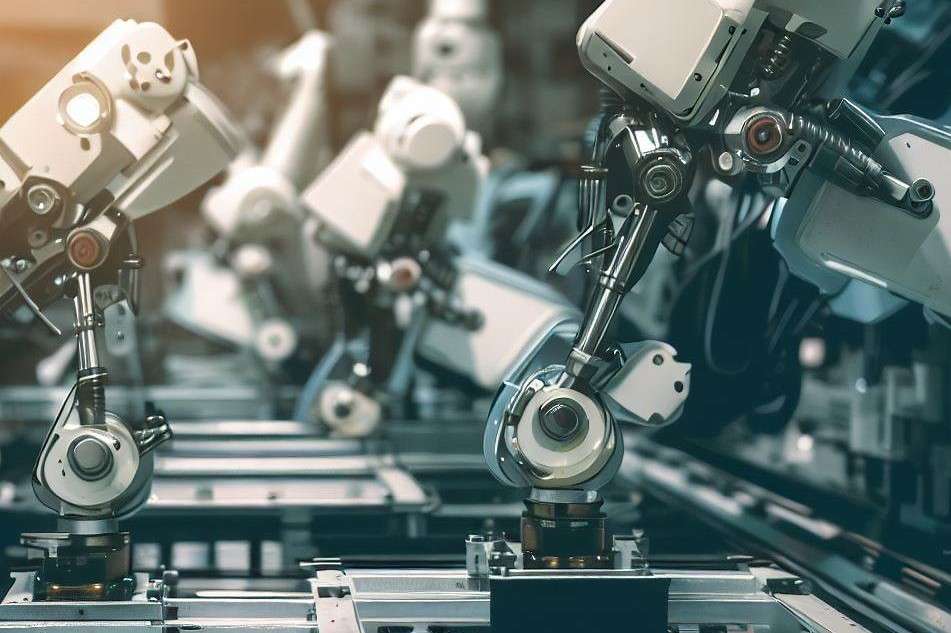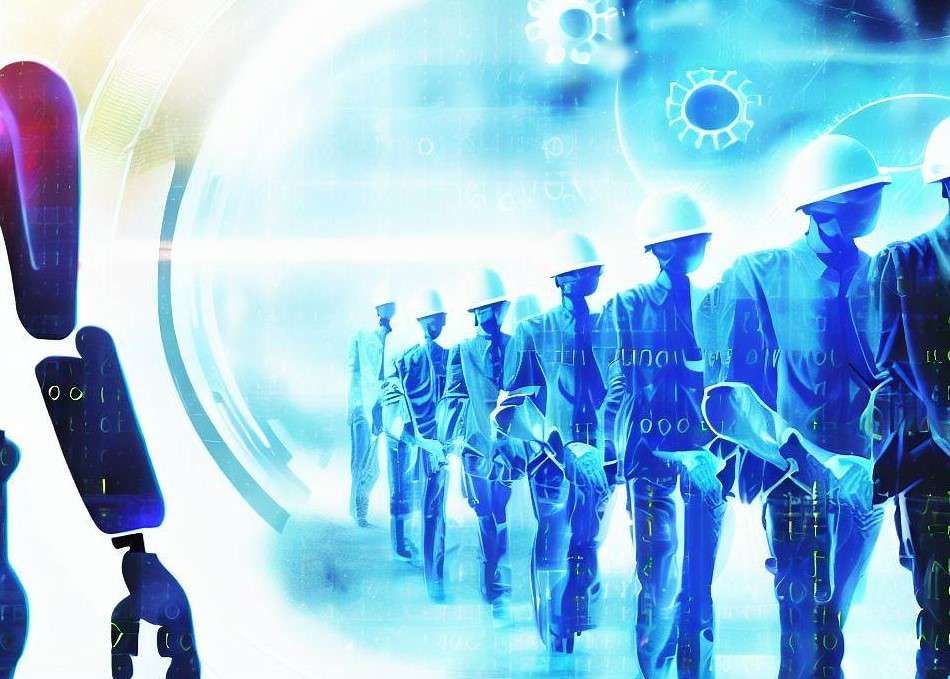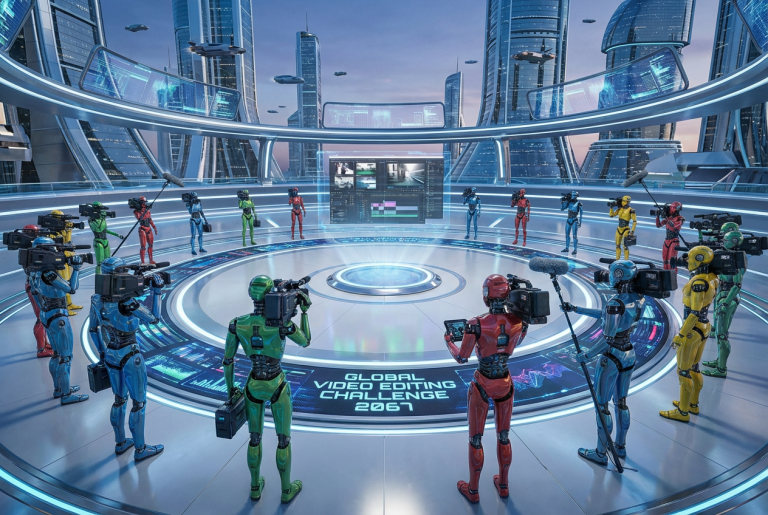AI Trends and Their Impact on the Labor Market Worldwide

In recent years, the rapid advancements in artificial intelligence (AI) have reshaped industries and revolutionized the way we work. As businesses across the globe embrace AI technologies, it’s crucial to examine the profound impact they have on the labor market. In this article, we’ll explore the current AI trends and their implications for professionals and businesses, providing valuable insights into the changing dynamics of the job market.
The Rise of AI in Industries

AI has found its way into various industries, including healthcare, finance, manufacturing, and customer service. From intelligent automation and predictive analytics to natural language processing and machine learning, AI technologies are streamlining operations, improving efficiency, and enabling data-driven decision-making. However, with these advancements come questions and concerns about the future of jobs.
AI Evolution and the impact on the Job Market
AI’s impact on industries is far-reaching, with significant implications for both job positions and entire sectors. In healthcare, AI is revolutionizing medical diagnostics by analyzing vast amounts of patient data and providing accurate insights for faster and more precise diagnoses. This shift allows healthcare professionals to concentrate on patient care, building stronger doctor-patient relationships, and developing personalized treatment plans.
In the finance industry, AI-powered algorithms are automating tasks like risk assessment, fraud detection, and algorithmic trading. This automation streamlines operations, improves efficiency, and reduces human errors. Financial professionals can then focus on strategic decision-making, building relationships with clients, and providing personalized financial advice tailored to individual needs.
The manufacturing sector is witnessing a transformation through AI-powered automation and robotics. AI-driven machines can perform complex tasks with precision and speed, enhancing production efficiency and reducing costs. This shift in manufacturing has also created new job roles such as robotics technicians, AI system operators, and process automation experts who are responsible for maintaining and optimizing AI-powered systems.
Customer service is another area significantly impacted by AI. Chatbots and virtual assistants powered by natural language processing and machine learning algorithms are providing instant support and resolving customer queries in real-time. This enables customer service representatives to focus on more complex and nuanced customer issues, ensuring a higher level of customer satisfaction and engagement.
Unlocking a World of Possibilities: The Future AI Trends in the Job Market

Moreover, AI is creating job roles that didn’t exist before. AI trainers are responsible for developing and training AI models, ensuring their accuracy and efficiency. Data scientists are in high demand, analyzing vast datasets to derive valuable insights that drive business strategies. Ethical AI specialists play a crucial role in addressing ethical considerations, ensuring fairness, transparency, and accountability in AI systems.
To adapt to these evolving job roles and opportunities, upskilling and reskilling initiatives are essential. Professionals need to acquire a blend of technical skills and soft skills to complement AI systems effectively. Developing skills in data analysis, machine learning, problem-solving, and creativity will be vital for individuals seeking to thrive in an AI-driven labor market.
Overall, while AI brings automation to certain tasks, it simultaneously opens doors to new job roles and opportunities. By harnessing the power of AI, professionals can redirect their efforts towards high-value work that requires human creativity, critical thinking, and emotional intelligence. The continuous development of AI technology and the corresponding evolution of job roles call for a proactive approach to upskilling and reskilling, ensuring individuals remain competitive and adaptable in a rapidly changing job market.
Ultimately, the successful integration of AI requires a shift in mindset and a commitment to continuous learning and development. Upskilling employees to work alongside AI systems, fostering a culture of collaboration, and embracing new roles and responsibilities are essential steps for organizations to seize the opportunities that AI presents.
The Best Resources to learn about AI, Machine Learning and Data

- Udemy Courses: Expand your knowledge with thousands of Video courses available on one of the largest education platform. With engaging content and a large range of topics, these AI courses provide a solid foundation and practical understanding and use of AI concepts and beyond.
- Tech Pilot Blog & Tools: Practical articles on AI Trends and use cases on how you can implement AI for business. Tech Pilot provides comprehensive AI Tools review for entrepreneurs and freelancers.
- Kaggle: Kaggle is a platform where you can participate in AI competitions, collaborate on projects, and access datasets to practice and apply your AI skills. It’s a great way to get hands-on experience with real-world problems.
- TensorFlow: TensorFlow is an open-source library for machine learning and AI developed by Google. They provide extensive documentation, tutorials, and resources to help beginners get started with AI programming using TensorFlow.
- PyTorch: PyTorch is another popular open-source machine learning library that offers a beginner-friendly interface for building AI models. The PyTorch website provides tutorials and documentation to help you learn and experiment with AI algorithms.
- AI newsletters: Subscribe to newsletters and follow AI-focused blogs like MIT Technology Review, AI Weekly, and AlphaSignals to stay updated on the latest AI trends, research, and applications of AI.
- AI communities and forums: Join AI communities and forums like Reddit’s r/MachineLearning and AI Stack Exchange. These platforms provide opportunities to ask questions, share knowledge, and engage with the AI community.
- YouTube channels: Explore YouTube channels like Lex Friedman Podcast, TwoMinutes Paper and Sentdex , which offer educational AI content in an engaging and easy-to-understand format.
- AI Conferences and Meetups: Attend AI conferences, workshops, and local meetups to network with AI enthusiasts, learn from experts, and discover new insights and advancements in the field.
In conclusion, while AI poses challenges such as workforce displacement, businesses that effectively integrate AI technologies and foster collaboration between humans and AI can unlock tremendous opportunities. By leveraging AI to augment human skills and potential, organizations can stay competitive, drive innovation, and achieve sustainable growth in the ever-evolving marketplace. By staying informed and proactive with AI course, blogs and newsletters, individuals and organizations can position themselves for success in an AI-driven world.




